A friend recently sent me a link to this Outdoor Life article. He said he thought I’d find it interesting. I have strong suspicions he wanted to poke the bear. Regardless of his motive, I was both intrigued and irritated. The article sought to answer the burning question: When a wild animal we’ve hunted lays dead and reduced to our possession, did we “kill” the animal or “harvest” it?
I use the modifier “burning” with not a smidge of sarcasm. This is an important question and discussion. Words shape our beliefs and values. Words dictate our actions and communicate the intent of those actions as individuals and perhaps even more so in groups. Words build and destroy nations. Words sanctify and desecrate. In the human world, there is nothing more powerful than words.
But the reasoning behind the question misses the mark. And the writer’s conclusion: She sits on the fence.
Know that “sitting on the fence” is the perfect idiom to summarize a conclusion couched in an agrarian and market-shaped view of what hunting is. My idiom for a take on the article is that the writer (and a lot of deer hunters nowadays) can’t see the forest because it was flattened to make way for a food plot and corn feeder.
One of the big reasons, huge reasons, maybe the number one reason I hunt is because, in a world consumed with dominating every aspect of nature, hunting can be a radically subversive action. Hunting a wild animal in its wild home on its terms to feed you and yours is a big-fat-hairy middle finger to the agri-industrial complex; to fences both barbed and those that can be philosophically sat upon; and to the subjugation and exploitation of plants, animals, the land itself, and even the hunter.
Okay, no, the number one reason I hunt is because I’m a human and hunting is what made us human. But aren’t those two reasons tightly intertwined? Undermining the domestication of everything—including us as a species and as individuals—is a strong number two. While there is something to be said for the comforts of a modern first-world life, there is also quite a bit to be said for the rich fullness of a life lived as we evolved to live it. Hunting can be, I would say that it should be, a tiny sample of that existence.
This is not a personal dig at the writer, Outdoor Life, or other hook-and-bullet publications. I understand The Game and understand they’ve got to play it to survive as a publication. Hell, they may not even realize they’re in it. Many don’t. I’ll give them the benefit of the doubt. But if they do, as a daily sacrificer of principles for the sake of The Game—the one we were all placed in at birth, can never win, but feel powerless to quit— I get it.
More Like This
However, I also can’t help but understand that tumors of consumerism have spread their oily tentacles even into our most ancient and sacred practices only because we’ve all been either sacrificing our principles in the name of money or plowing that row in blinders for centuries. The existence of an “outdoor industry” should itself be proof enough of metastization. I write this as a feeding cancer cell myself.
And none of this is a hard swipe at agriculture, a necessary evil much like Thomas Paine so perfectly described government. My rantings here aren’t aimed at casting agriculture as the original sin (though, I could argue that it played the role of tempter) and we cannot go back to those hunter/gatherer days before we ate the apple bloomed and plumped on grafted limb. There are ways to sustainably and thoughtfully raise domestic plants and animals for consumption. I have a garden and am contemplating a couple of pigs and a few chickens.
Despite the need and inherent nobility in growing meat for yourself and others with great consideration of the land and the animals, taking care of an animal in order to kill and eat it still feels like something is off to me. And then there are the sad animals leading sad lives hock-deep in their own shit, overweight yet always hungry, numbed mentally and emotionally in a bleak existence.
But let’s put aside disgust for industrial animal agriculture and mild distaste for agriculture of any kind and focus on the primary point in this argument. That being: what is domesticated and what is wild should not be amalgamated. Let’s not lump the deer with the cow because both carry delicious red meat on their skeletons. One evolved over millions of years to live as wild prey. One was engineered and currently survives within a manufactured ecosystem as a marketable item. Pity the mighty auroch.
“Harvest” is an agricultural term that implies dominion and ownership from seed and semen to table. Using it in the hunting context blurs the reasons for hunting, what hunting has been, and what it is now. It’s a sanitized word of detachment to make us feel better about our inherent bloodthirst and our brutal capabilities. “Harvest” is a word that suggests an investment was made and the return is expected. That is not hunting.
In the Outdoor Life writer’s defense, that’s a lot of what hunting is for a lot of folks nowadays. Automatic feeders, mineral supplements, and 24-hour video surveillance aimed at ultimate efficiency and by-god bloody results are all a part of “the hunt.” I once owned a 2,000-head hog farm where I depended on all of these to run the operation for the same end goals.
Lost in the “harvest” of an animal is a primal understanding of what we are, of our place in the wild communities and among the wild beings. Lost is the understanding that we, too, are animals. Bobcats and hawks have not ever “harvested” a squirrel. It reduces those wild beings we eat, those whose lives we take so that we can live, to commodities. We already have enough, too many, animals existing as commodities.
The deer I kill will never confuse me for their caretaker, their food provider, or anything other than smelly death. Our relationship is built on crystalline clarity. Within this clarity resides a virtue older than honor. It’s the understanding that I, too, will die and feed other hungry things in a somber circle of kinship.
In a word—humility.
And what our civilization needs more than anything else is a dose of uncivilized humility. This will likely be administered one way or another eventually. I’d prefer it to be by our choice. With that proactive spirit, we must speak and write words dripping with humility and let those words shape an ancient and humble worldview like the creeks shape our land.
And if we don’t? Well, this flood of human hubris will surely wash us all away.
The reasons I kill deer might differ from yours. The methods I use to kill deer, born of privilege as someone with access to vast acres of public land and time to learn its secrets, almost certainly are. But doesn’t a stark difference in tactics used demand a distinction in labeling?
Maybe we hunters shouldn’t wonder if we “kill” or “harvest” animals. Maybe we should ask if our actions should be called “hunting.”

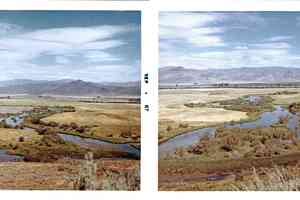
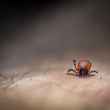
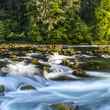
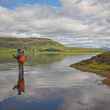
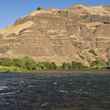

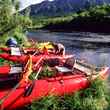
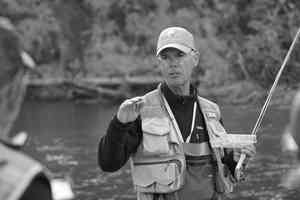
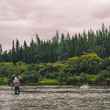

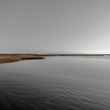
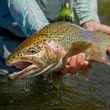
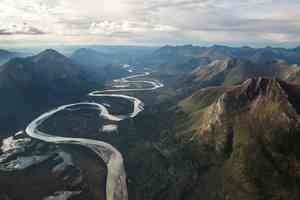

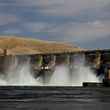
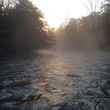

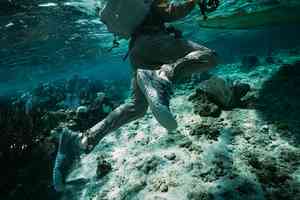
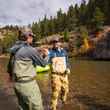
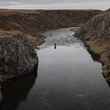
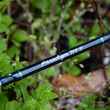
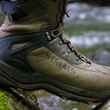
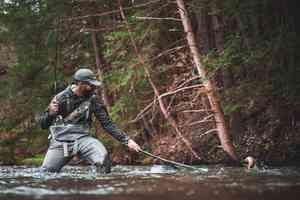

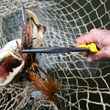
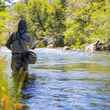
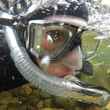

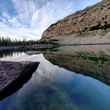
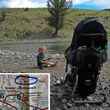
Comments
Steven replied on Permalink
Good article but I never believed that anything else other than stalking your quarry was hunting.
Pages